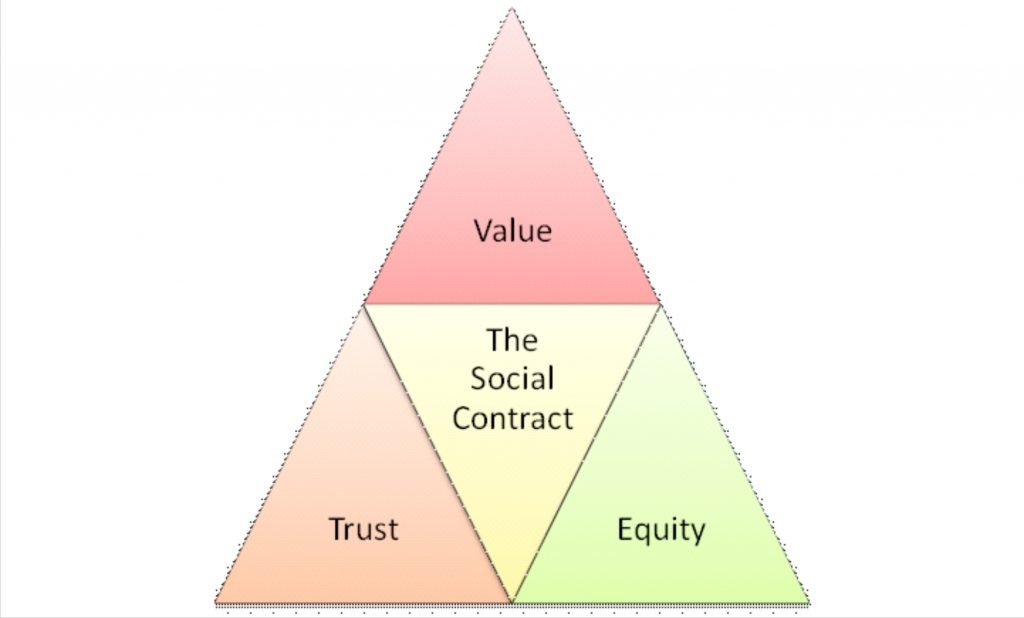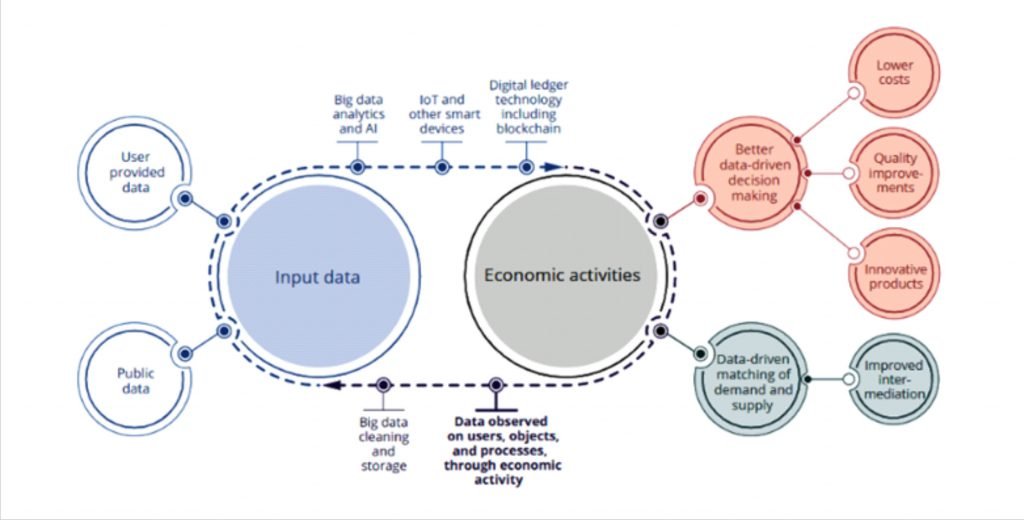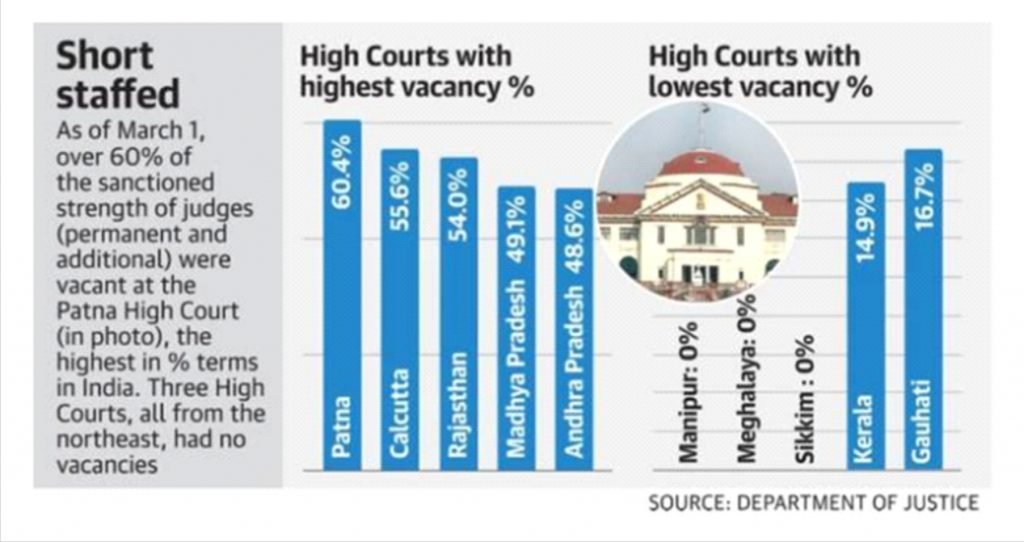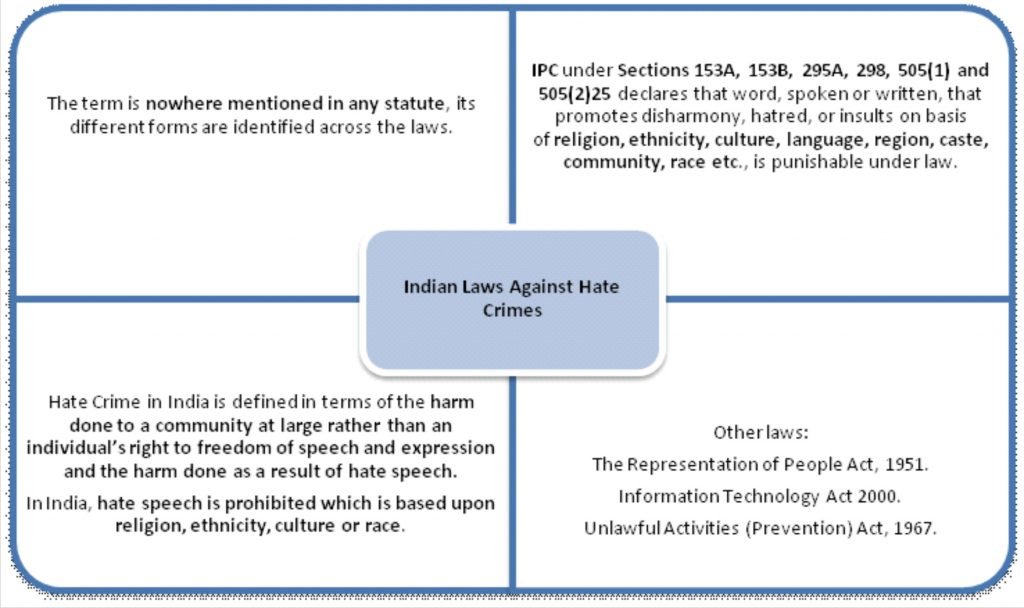Current Affairs (30th March 2021)
World Development Report 2021
Context:
- Recently, World Development Report 2021: Data for Better Lives has been released by the World Bank.
About Report 2021:
- It explores the tremendous potential of the changing data landscape to improve the lives of poor people, while also acknowledging its potential to open back doors that can harm individuals, businesses, and societies.
- To address this tension between the helpful and harmful potential of data, this Report calls for a new social contract that enables the use and reuse of data to create economic and social value, ensures equitable access to that value, and fosters trust that data will not be misused in harmful ways.
Main Messages
- Forge a new social contract for data. For data to realize its potential to transform lives, new rules of the road are needed – a social contract for data is needed.
- Such a contract would enable the use and reuse of data to create economic and social value, while ensuring equitable access to the value realized, as well as fostering participants’ trust that they will not be harmed by data misuse.
- Renewed efforts are required to improve data governance domestically, as well as through closer international cooperation.
- Moreover, the voice of low-income countries needs to be heard in the global debate on data governance.

- Increase data use and reuse to realize greater value. Using data for one purpose does not diminish their value. Increasing access to more users through open data, interoperability standards and data sharing initiatives, for example, increases the potential of data for positive development impacts.
- Much of the recent explosion in new data has stemmed from digitization of firm operations.
- Combining these data with traditional sources such as censuses, national surveys, government administrative data, and data produced by civil society organizations could help fill data gaps, provide timelier and finer-scale assessments of programs and policies, and serve public policy needs.
- Create more equitable access to the benefits of data. Major inequities in the ability to produce, utilize, and profit from data can be found across both rich and poor countries and among the rich and poor people within them.
- Data systems for public and private intent data alike tend to exclude poor people, and statistical capacity and data literacy remain limited in poor countries.
- Many lower-income countries lack the data infrastructure needed to speedily exchange their own data traffic over the internet and secure cost-effective access to modern data storage and cloud computing facilities.
- Their small economic size also limits the availability of data for machine learning and constrains the development of home-grown platform businesses that could be globally competitive.
- Efforts to improve the fairness of the global data system need to address both types of inequities.
- Foster trust through safeguards that protect people from the harm of data misuse. The more data are reused, the greater is the risk of data misuse.
- This risk is evident in growing concerns about cybercrime and the potential for politically or commercially motivated surveillance.
- The scope for discrimination based on ethnicity, religion, race, gender, disability status, or sexual orientation may be further exacerbated by the growing use of algorithms.
- Addressing these concerns calls for the regulation of personal data grounded in a human rights framework, supported by policies that secure both people and the data systems on which they depend.
- Work toward an integrated national data system (INDS). Although a new social contract can rebalance and reset the rules of the game for data governance, implementation of this vision further calls for an INDS that allows the flow of data among a wide array of users in a way that facilitates safe use and reuse of data.
- A well-functioning INDS explicitly builds data production, protection, exchange, and use into planning and decision-making and actively integrates the various stakeholders—individuals, civil society, academia, and the public and private sectors— into the data life cycle and into the governance structures of the system.
- Achieving a well-functioning INDS requires proper financing and incentives to produce, protect, and share data.
- Greater investment in physical and human capital is needed to improve data governance, specialized analytical and data security skills, as well as data literacy of the general public.
- Dependent on starting points, countries will need to work gradually toward this goal.

Backlog in High Courts
CONTEXT:
- The Supreme Court pushed for the appointment of retired judges to battle pendency of cases in High Courts.
- Retired judges could be chosen on the basis of their expertise in a particular field of dispute and allowed to retire once the pendency in that zone of law was over.
ABOUT:
- Retired judges who had handled certain disputes and fields of law for over 15 years could deal with them faster if brought back into harness as ad-hoc judges. Once pendency is over, they can end their tenure.
- Appointment of ad-hoc judges would not be a threat to the services of other judges. Ad-hoc judges will be treated as the junior most.

- Appointment of ad-hoc judges was provided for in the Constitution under Article 224A (appointment of retired judges at sittings of High Courts).
- Under the Article, the Chief Justice of a High Court for any State may at any time, with the previous consent of the President, request any person who has held the office of judge of that court or of any other High Court to sit and act as a judge of the High Court for that State.
- The court orally outlined prospective guidelines for the appointment and functioning of an ad hoc judge.
- If in a particular jurisdiction, the pendency goes beyond a certain limit, say eight or 10 years, the Chief Justice may appoint a certain [retired] judge with expertise in those fields of laws as an ad hoc judge. The term of such a judge could be extendable.
Reasons For Pendency
- The budget allocated to the judiciary is between 0.08 and 0.09% of the GDP.
- When a new legislation is formed, there is no judicial impact assessment done by the government on how much burden is going to be casted on the judiciary.
- Collegium recommendations have been pending with the government for over seven months to a year to get approval in order to fill vacancies in High Courts.
- According to the Economic Survey 2018-19, poorly drafted orders have resulted in contested tax revenues equal to 4.7% of the GDP and it is rising.
Hate crime
CONTEXT:
- The Supreme Court quashed hate crime proceedings initiated against Padma Shri awardee and senior journalist Patricia Mukhim for a Facebook post.
- A Bench agreed that her social media post was only an expression of truth in the face of persecution.
BACKGROUND:
- The decision came in Ms. Mukhim’s appeal against the Meghalaya High Court’s refusal to quash the proceedings against her under Sections 153a (hate), 500 (defamation) and 505(c) (incite a community or caste to commit an offence against another). The offences are non-bailable.
WHAT IS HATE CRIME?
- It could be defined as an attack on a person’s rights entrusted to him/her thereby affecting not only him/her but the social structure as a whole which in many ways makes it more heinous than many other Criminal Offences.
- Most common grounds of hate speech are race, ethnicity, religion or class.

Earth Hour
Context:
- Earth Hour was observed on 27 (last Saturday of March) March 2021.
About:
- It is an annual event organized by the World Wildlife Fund (WWF) that promotes conservation and sustainable energy.
- Civilians are encouraged to switch off their lights for one hour to help reduce the effect of global warming and raise awareness for climate change and wildlife conservation.
Background:
- It was famously started as a lights-off event in Sydney, Australia in 2007. Since then it has grown to engage more than 7000 cities and towns worldwide.
- Today, Earth Hour engages a massive mainstream community on a broad range of environmental issues. The one-hour event continues to remain the key driver of the now larger movement.
Difference between Earth Hour and Earth Day
- Earth Hour stands as a climate change initiative where people reduce their electricity usage, Earth Day (April 22) celebrates our natural environment by inspiring people to plant trees, recycle regularly and keep the planet tidy.
Need of Earth Hour:
- Global warming, rising levels of pollution due to ever increasing industrialisation, declining forest cover and rising sea levels are some of the dangers that drastically affect the workings of life on the earth.
- With ever rising population of the world, the climate change has put the humankind at a great risk along with other species.
- With Earth Hour, the WWF aims to engage people across the globe to adopt more sustainable lifestyle. Turning off lights for an hour is just an annual reminder that if the world does not mend its ways, it will be heading to a dark age, literally.
Africa’s elephants
Context:
- Africa’s forest and savanna elephants are now ‘critically endangered’ and ‘endangered’ due to population declines caused primarily by poaching and habitat loss, according to the International Union for Conservation of Nature (IUCN). Both species were earlier listed as ‘vulnerable’.
- The population of African forest elephants plummeted by 86 per cent in the last 31 years while that of the savanna elephants dropped by 60 per cent in the last 50 years, according to the IUCN.
About African elephants:
- These are the largest land animals on Earth. They are slightly larger than Asian elephants.
- They have two finger like features on the end of their trunk while Asian elephants have just one.
- Elephants are matriarchal.
- They are keystone species. Also known as “ecosystem engineers”.
- Elephants have a longer pregnancy than any other mammal—almost 22 months. This compounds the problem of conservation since there are simply not enough calves being born to make up for the losses from poaching.
- There are two subspecies of African elephants, the Savanna (or bush) elephant and the Forest elephant. Savanna elephants are the larger of two.

